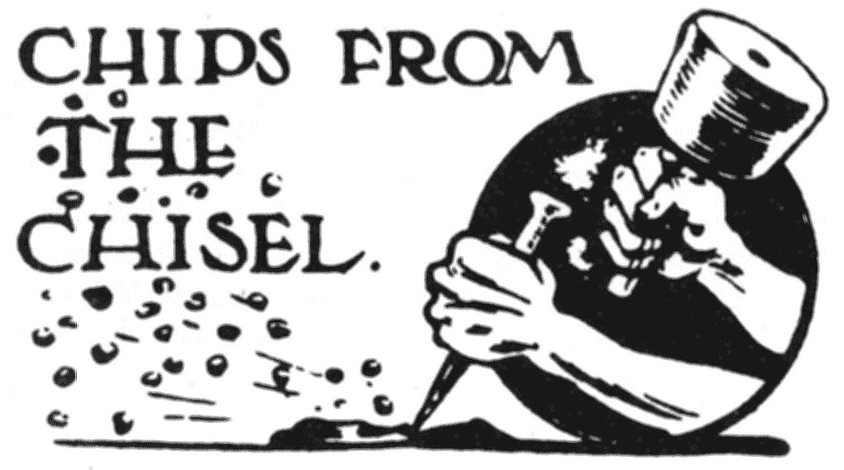 |
The following article is presented with the
compliments of the The article may be freely used for masonic purposes only.
For all other purposes the approval of the |
 |
The following article is presented with the
compliments of the The article may be freely used for masonic purposes only.
For all other purposes the approval of the |

Freemasonry In Thailand
(A non-colonial masonic environment !!)
In 1911, Lodge St.John No.1072 (S.C.) was consecrated, yet it took more than 80 years for a second lodge to be established. The next lodge was Lodge Pattaya West Winds No.1803 (S.C.) in 1993, to be followed by a French lodge in 1994, "Les Sept Niveaux de la Sagesse No.891" (G.L.N.F.).
Why so long between consecrations? While it cannot be denied that Freemasonry was and is predominantly an 'expatriate' activity in Thailand, and while it must be admitted that it has had and still has many members of rank and affluence, there are much less accusatory, albeit much more complex, reasons why Freemasonry is not so widespread here as elsewhere in the region.
It must be remembered that the Kingdom of Thailand is one of the few sovereign nations never to have been colonized and thus did not undergo the massive and pervasive introduction of Western culture, socio-political systems, and political and moral ideologies that occurred in, say, Malaysia or Singapore. Outside of Thailand Freemasonry entered society on the back of colonialism and spread its benign influence, to a great extent, in relation to how benign that colonial administration was to the indigenous peoples and how influenced the colonial masters themselves were by Masonic tenets through their own membership of the Order. In colonial countries Freemasonry took root and grew strongly, particularly once the local colonial masters allowed the indigenous members of society to join their ranks, which sometimes and in some countries took many years to achieve. Above all, the language of the colonial masters, in the majority of cases English, was the fertilizer and the bonding glue of Freemasonry and has remained so to this day.
Hence in Thailand ethnic Thais were never excluded from membership of Freemasonry, unlike there colonial neighbours' ethnic peoples. Thus, within 15 years of its consecration, St.John No.1072, had 20% ethnic Thai members and this grew to 25% by the outbreak of WW II. This growth in percentage reflected the gradual growth of English education and English language usage among the sons of the upper classes, particularly after the dissolution of absolute monarchy in 1932.
The Second World War saw the destruction of virtually all records and possessions of Lodge St.John. Indeed the Japanese raided and gutted the Lodge premises as their very first act on entering Bangkok, having sent a special Military Intelligence team by road from the recently occupied Free French city of Chantaburi on the Cambodian border with that sole and specific task. Many of the expatriate Masons had already escaped to India or Australia, but of those who remained and who were interned in the Death camps, very few survived the following years of brutality and starvation. Those few who did survive, or did return after the War, immediately set about the re-establishment of the Lodge and by 1946 Freemasonry was again functioning in Bangkok. Few, however, of the Thai brethren had also survived the War. Indeed, for the ensuing period of the late 1940's to early 1970's Thai society was undergoing a radical and at sometimes traumatic transformation. While membership of societies such as Freemasonry was not forbidden, great circumspection was required by modern Thai intellectuals during the years of military dictatorship as to what overt allegiances they possessed, especially if these were to a Brotherhood that proselytized the Rights of Man.
Although large numbers of the upper class did go abroad and gain a fluency in English, it did not result in a large influx into the ranks of freemasons. It was only in the mid-1980s when Thai society saw the emergence of a middle class and political and social life allowed less circumspection in membership of such organisation as Freemasonry. The coming decade will see Freemasonry benefiting from this emergence of an English-speaking middle class, as soon as this new generation of foreign-educated Thais enter their mid-thirties.
More and more expatriate members of Lodge St.John were short term visitors to Bangkok, unlikely to make the friendships with their Thai counterparts which would lead to the latter joining the Craft. In the early nineties, as Thailand's economy boomed, this trend changed 180 degrees, which bodes well for the future.
At the same time a large number of expatriates began to settle in Pattaya and elsewhere on the Eastern Seaboard, and in Chiangmai in the north of the country. With their enthusiasm for Freemasonry, the Craft has continued to grow such is the reason for us being here today. This consecration is fully supported by the Pattaya and Changmai brethren thus the future of Thai freemasonry augers well.
Ref: "Constitution & Installation, Morakot Lodge 945 I.C., 1st April 1995, Pattaya Thailand", pgs 25 & 26.

GO TO ARTICLES:
M W Bro A.T. Holden, PGM
The history and formation of the Holden Research
Circle
Decidation of HRC No 2
Freemasonry - the mighty paradox
The genuine Secrets of a Master Mason
Freemasonry in ancient China
Freemasonry in Thailand
Pillar Clubs
The "9 Worthies" or "Excellent Masters"
Stone Masons Terminology
A simple lodge meeting
Count Leo Tolstoy and Freemasonry
De-Christianisation of English
Freemasonry
Freemasonry which is of the now, not just the
future
Previous articles from our "Chips of the Chisel" may be obtained
and can be selected from the following pages:
1995/96 HRC Chips Index
1997 HRC Chips Index
1998 HRC Chips Index
1999 HRC Chips Index
2000 HRC Chips Index
Sign our Guestbook View our Guestbook

SOME LINKS TO ASSOCIATED WEBSITES

Updated: 23 June 2001
![Masonry Universal.gif]](mubumper.gif)